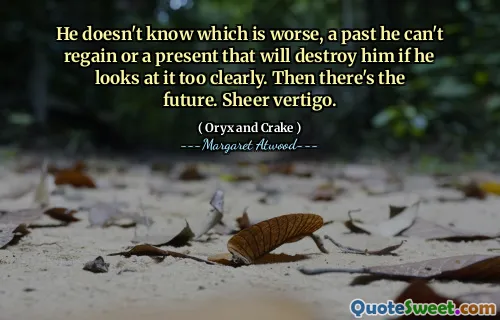All it takes," said Crake, "is the elimination of one generation. One generation of anything. Beetles, trees, microbes, scientists, speakers of French, whatever. Break the link in time between one generation and the next, and it's game over forever.
In Margaret Atwood's "Oryx and Crake," the character Crake emphasizes the profound impact of severing a generational link. He suggests that by eliminating an entire generation of any species or group, society and ecosystems can be irreversibly altered. This idea highlights the fragility of connections that bind generations, whether they are living organisms or cultural identities. Without these links, continuity is disrupted, leading to permanent changes that cannot be easily reversed.
This perspective raises questions about the consequences of human actions and the ethical implications of genetic engineering and environmental manipulation. As Crake indicates, the loss of knowledge and experience that comes with the death of a generation can lead to a complete breakdown of systems that rely on inherited wisdom and practices. Ultimately, Atwood portrays a cautionary tale about the risks of playing god and the importance of intergenerational ties in maintaining the balance of life.






